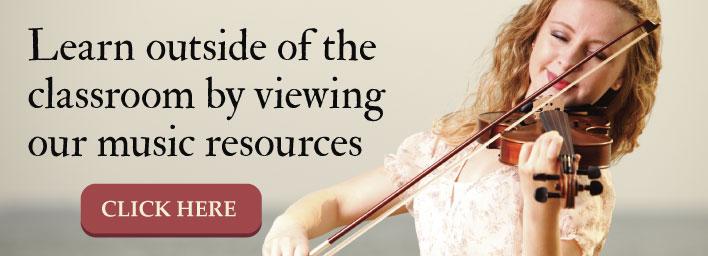14 Interview Tips For Landing Your Summer Music Job

Have you applied for your summer job yet? If you haven’t – get going; times a-wastin’.
For those of you who have, you’re probably starting to get calls for interviews. Well done! Your resume did its job. Now is the time to impress interviewers and get some job offers. You wouldn’t go on stage without practicing and preparing for the performance. Well, a job interview is also a performance and everything about you is getting assessed, not just how you answer the interviewer’s questions.
Before you go…
Take care of some logistics:
- Confirm the time and place of the interview. Don’t assume it’s at the company’s or organization’s main location.
- Get on Google Maps and figure out exactly how to get there and how long it will take. Then plan to leave earlier than that. You don’t need to arrive an hour early (in fact, don’t), but arriving late is all on you.
- Figure out what you’re going to wear and make it sure it’s all clean and pressed. You can slightly (slightly!) overdress for an interview. For example, if you’re interviewing to be a counselor at an arts camp, don’t show up in shorts and a t-shirt, even though you may well dress that way on the job. Some clean chinos and button down shirt or blouse is fine. If you’re applying for a job with a company, dress more formally.
Do some extra preparation, research on the organization, how the job fits into it, and the interviewer (if you know who that is). Since your resume got you the interview, you probably took our resume writing advice that your resume isn’t about you – it’s about how you can meet the needs of the organization. Same with an interview.
- Take note of recent changes or clear priorities of the organization, how they’ve used the role you applied for in the past, and where the interviewer falls in all of this.
- Compile examples from your past that demonstrate some of the skills they’ll be looking for in light of the role this job plays for them. You know they liked your resume, so start there and think about the ways you can expand on those achievements.
- Practice how you’ll answer the question “Tell me about yourself…” They’re not asking for your life story here. Primarily, the interviewer wants see how you handle yourself in an unstructured situation and get a sense of your priorities. Put together an answer that tells them why you’re interested in this position, how you see the ways you can contribute through this role and how it helps you achieve future goals. Here’s the tricky part: Keep it your answer concise. Not more than 90 seconds. The interviewer has other questions. If you’re applying at a larger company, you may be able to get a sneak peek at their questions. If you search on Glass Door, an online job forum, you might be able to find postings from other interviewees what they were asked. Here’s what turns up on a search for Universal Music Group.
- In fact, here’s a list of 109 questions that have come up in music job interviews. You won’t get asked them all. Many might not make sense for the position. But take a look and practice answering some of the questions you think may be relevant.
- Did you look? If so, you noticed the link also has an additional 28 suggested questions that you can ask the interviewer. Interviewers always ask if you have any questions. Not having any doesn’t reflect well on you. It’s seen as either poor preparation or indifference. Have a few questions prepared that show you’re thinking about how you would work in the position. Let’s say you’re applying to be an arts admin intern at an organization, you might ask about whether they have a social media policy for you to refer to. If you’re applying at an instrument store that you know holds weekly live music events (because you did your research!), you might ask how the job you’re applying for participates in planning and holding these events.
Now that you’re there…
- If someone stretches out their hand, shake it. Confidently but not too long or squeezing too hard.
- Answer the question asked; don’t just veer off into what you have on your checklist to tell them. If none of the answers you prepared answers the questions asked, you prepared badly.
- But don’t worry about it. If you get a question you don’t know how to answer, don’t be afraid to take a beat and think about it. You can say, “Wow, I’ve not been asked that before. Let me think about it.” Don’t take too long. Just remember: the interviewer’s goal is to see how you fit the needs of the organization. Your goal is to present past accomplishments and current skills in that context. Keep that formula in mind and you’ll be fine.
- Examples are better than descriptions. Saying “I love teaching kids” is OK. Saying “I love teaching kids, that’s why I’ve been a volunteer choir assistant at my church since I was 15” is much better.
- At the end of the interview, feel free to ask what the process is from here and when they expect to make a decision.
Once you leave…
- Send a thank you note or email. Reiterate your strongest point why you’d be an awesome counselor, intern, assistant, etc.
You may have noticed – all the heavy lifting occurs before the interview. Do that work and the interviewing itself will go smoothly.
Good luck!


